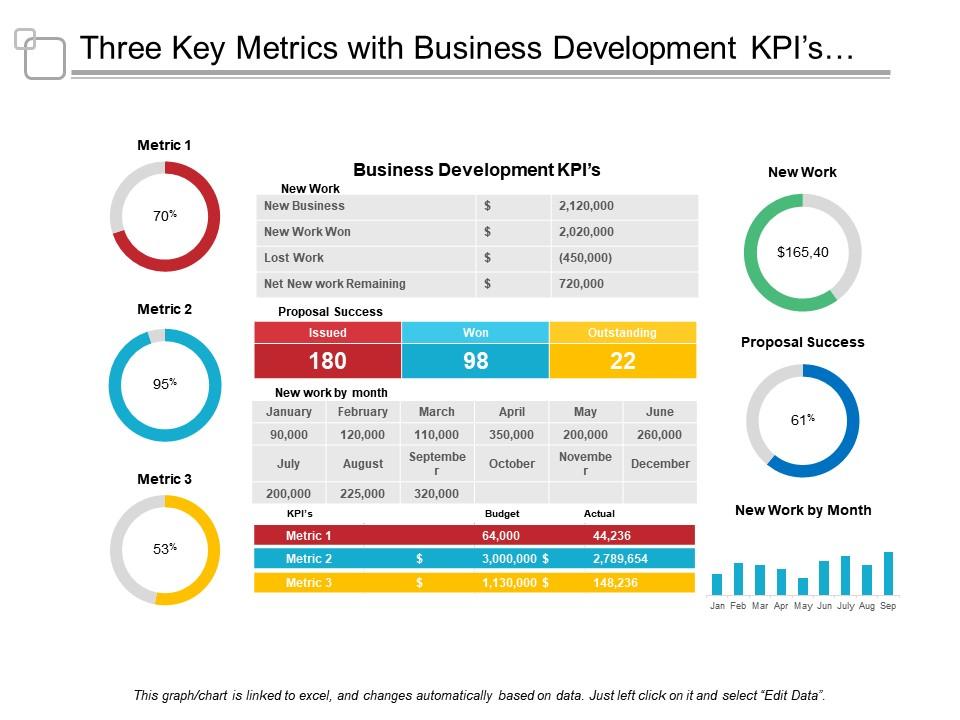Key Characteristics of Successful Startup Leaders
Startup leaders who thrive in today’s fast-paced and competitive environment possess a unique set of traits and skills. Adaptability, resilience, and strategic thinking are essential characteristics that enable leaders to navigate the challenges of startup leadership development. These leaders are able to pivot quickly in response to changing circumstances, prioritize tasks effectively, and make informed decisions with limited information.
Successful startup leaders are also able to inspire and motivate their teams, often with limited financial resources and no established brand reputation. This requires strong communication and interpersonal skills, as well as the ability to empower team members to take ownership and drive results. For example, leaders like Steve Jobs and Elon Musk are known for their ability to inspire and motivate their teams, driving innovation and growth in their respective industries.
Other key characteristics of successful startup leaders include a strong vision, a willingness to take calculated risks, and a commitment to continuous learning and improvement. These leaders are able to balance short-term needs with long-term vision, prioritizing tasks and allocating resources to drive growth and innovation. By possessing these traits and skills, startup leaders can build a strong foundation for success and drive their organizations forward in a rapidly changing environment.
Furthermore, successful startup leaders are able to foster a positive company culture, promoting a culture of innovation, experimentation, and continuous learning. This requires a deep understanding of the organization’s values and mission, as well as the ability to communicate effectively with team members, investors, and customers. By prioritizing startup leadership development and cultivating these key characteristics, organizations can build a strong foundation for long-term success and drive growth and innovation in their industries.
How to Develop a Strong Leadership Mindset
Developing a strong leadership mindset is crucial for startup leaders to succeed in today’s fast-paced and competitive environment. A growth mindset, which emphasizes self-awareness, continuous learning, and embracing failure as a learning opportunity, is essential for startup leadership development. By cultivating this mindset, leaders can adapt to changing circumstances, prioritize tasks effectively, and make informed decisions with limited information.
Self-awareness is a critical component of a strong leadership mindset. Startup leaders must be able to recognize their strengths and weaknesses, as well as their values and motivations. This requires a high degree of emotional intelligence, which enables leaders to understand themselves and others. By being self-aware, leaders can make informed decisions, prioritize tasks effectively, and build strong relationships with team members, investors, and customers.
Continuous learning is also essential for startup leaders. The startup environment is constantly evolving, with new technologies, trends, and innovations emerging all the time. Leaders must be able to stay ahead of the curve, learning new skills and adapting to new circumstances. This requires a commitment to ongoing learning and development, as well as a willingness to take calculated risks and experiment with new approaches.
Embracing failure as a learning opportunity is also critical for startup leaders. Failure is an inevitable part of the startup journey, and leaders must be able to learn from their mistakes and use them as opportunities for growth and improvement. By embracing failure, leaders can build resilience, develop a growth mindset, and create a culture of innovation and experimentation within their organization.
By developing a strong leadership mindset, startup leaders can build a strong foundation for success and drive their organizations forward in a rapidly changing environment. This requires a commitment to self-awareness, continuous learning, and embracing failure as a learning opportunity. By prioritizing startup leadership development and cultivating these essential skills, leaders can achieve their goals and create a lasting impact in their industry.
Building a High-Performing Team: Leadership Strategies for Startups
Building a high-performing team is crucial for startup success. A strong team can drive growth, innovation, and customer satisfaction, while a weak team can hinder progress and lead to failure. Startup leaders must prioritize team building and development to ensure their organization has the talent and expertise needed to succeed.
Hiring the right people is a critical aspect of building a high-performing team. Startup leaders must identify the skills and expertise needed to drive their organization forward and recruit top talent to fill those roles. This requires a deep understanding of the organization’s needs and goals, as well as the ability to attract and retain top performers.
Fostering a positive company culture is also essential for building a high-performing team. A positive culture can drive engagement, motivation, and productivity, while a negative culture can lead to turnover and decreased performance. Startup leaders must prioritize culture building and development, creating an environment that supports collaboration, innovation, and growth.
Empowering team members to take ownership is also critical for building a high-performing team. Startup leaders must give their team members the autonomy to make decisions, take risks, and drive results. This requires a high degree of trust and confidence in the team, as well as a willingness to delegate authority and responsibility.
By prioritizing team building and development, startup leaders can create a high-performing team that drives growth, innovation, and customer satisfaction. This requires a deep understanding of the organization’s needs and goals, as well as the ability to attract, retain, and empower top talent. By investing in their team, startup leaders can build a strong foundation for success and drive their organization forward in a rapidly changing environment.
Startup leadership development programs can also play a critical role in building a high-performing team. These programs can provide leaders with the skills and expertise needed to build and manage a high-performing team, including training on leadership, communication, and team management. By investing in these programs, startup leaders can develop the skills and expertise needed to drive their organization forward and achieve their goals.
Effective Communication: The Key to Startup Success
Effective communication is a critical component of startup leadership development. Clear and concise communication can drive success, while poor communication can lead to failure. Startup leaders must prioritize communication, ensuring that all stakeholders, including team members, investors, and customers, are informed and aligned.
Clear goal-setting is essential for effective communication in startups. Leaders must clearly define and communicate their vision, mission, and objectives, ensuring that everyone understands what needs to be achieved. This requires a high degree of transparency and openness, as well as a willingness to listen and adapt to changing circumstances.
Regular feedback is also critical for effective communication in startups. Leaders must provide regular feedback to team members, investors, and customers, ensuring that everyone is informed and aligned. This requires a high degree of emotional intelligence, as well as a willingness to listen and adapt to changing circumstances.
Active listening is another essential component of effective communication in startups. Leaders must listen carefully to team members, investors, and customers, ensuring that they understand their needs and concerns. This requires a high degree of empathy and understanding, as well as a willingness to adapt and respond to changing circumstances.
By prioritizing effective communication, startup leaders can drive success and achieve their goals. This requires a high degree of transparency, openness, and emotional intelligence, as well as a willingness to listen and adapt to changing circumstances. By investing in effective communication, startup leaders can build a strong foundation for success and drive their organization forward in a rapidly changing environment.
Startup leadership development programs can also play a critical role in improving communication skills. These programs can provide leaders with the skills and expertise needed to communicate effectively, including training on communication, emotional intelligence, and conflict resolution. By investing in these programs, startup leaders can develop the skills and expertise needed to drive their organization forward and achieve their goals.
Leadership Development Programs for Startups: What Works and What Doesn’t
Leadership development programs are a crucial aspect of startup leadership development. These programs can provide startup leaders with the skills and expertise needed to drive their organization forward and achieve their goals. However, not all leadership development programs are created equal, and some may be more effective than others.
Mentorship programs are a popular approach to leadership development in startups. These programs pair startup leaders with experienced mentors who can provide guidance, support, and feedback. Mentorship programs can be highly effective, but they require careful planning and execution to ensure that they meet the needs of the startup leader.
Coaching programs are another approach to leadership development in startups. These programs provide startup leaders with one-on-one coaching and feedback, helping them to develop the skills and expertise needed to drive their organization forward. Coaching programs can be highly effective, but they require a high degree of commitment and engagement from the startup leader.
Training initiatives are also a common approach to leadership development in startups. These programs provide startup leaders with training and development opportunities, helping them to develop the skills and expertise needed to drive their organization forward. Training initiatives can be highly effective, but they require careful planning and execution to ensure that they meet the needs of the startup leader.
When evaluating leadership development programs for startups, it’s essential to consider the pros and cons of each approach. Mentorship programs, for example, can provide startup leaders with valuable guidance and support, but they may not provide the same level of structure and accountability as coaching programs. Coaching programs, on the other hand, can provide startup leaders with one-on-one feedback and support, but they may be more expensive than mentorship programs.
Ultimately, the most effective leadership development program for a startup will depend on the specific needs and goals of the organization. By carefully evaluating the pros and cons of each approach, startup leaders can make informed decisions about which program is best for their organization.
Measuring Leadership Success in Startups: Metrics and Benchmarks
Measuring leadership success in startups can be challenging due to the lack of traditional metrics and benchmarks. Unlike established companies, startups often don’t have a clear track record of performance or established metrics to measure success. However, there are alternative approaches that can be used to measure leadership success in startups.
OKRs (Objectives and Key Results) are a popular approach to measuring leadership success in startups. OKRs provide a clear framework for setting goals and measuring progress, allowing leaders to track their performance and make data-driven decisions. By setting OKRs, startup leaders can establish clear objectives and key results that align with their company’s mission and vision.
Customer satisfaction is another important metric for measuring leadership success in startups. Customer satisfaction can be measured through surveys, feedback forms, and other tools, providing valuable insights into how customers perceive the company’s products or services. By prioritizing customer satisfaction, startup leaders can build a loyal customer base and drive growth and revenue.
Team engagement metrics are also essential for measuring leadership success in startups. Team engagement metrics can include metrics such as employee satisfaction, retention rates, and productivity. By prioritizing team engagement, startup leaders can build a high-performing team that is motivated and committed to achieving the company’s goals.
Other metrics that can be used to measure leadership success in startups include revenue growth, market share, and product development milestones. By tracking these metrics, startup leaders can gain valuable insights into their company’s performance and make data-driven decisions to drive growth and success.
Ultimately, the key to measuring leadership success in startups is to establish clear goals and metrics that align with the company’s mission and vision. By using a combination of OKRs, customer satisfaction, team engagement metrics, and other metrics, startup leaders can gain a comprehensive understanding of their company’s performance and make informed decisions to drive growth and success.
Sustaining Leadership Momentum: Overcoming Common Challenges
Sustaining leadership momentum is crucial for startup success. However, startup leaders often face common challenges that can hinder their progress, including burnout, scaling issues, and maintaining a strong company culture. To overcome these obstacles, startup leaders must develop strategies for sustaining leadership momentum over time.
Burnout is a common challenge that startup leaders face. The high-pressure environment of a startup can lead to physical and mental exhaustion, causing leaders to lose momentum and motivation. To overcome burnout, startup leaders must prioritize self-care, including exercise, meditation, and time off. They must also delegate tasks effectively, empowering team members to take ownership and drive results.
Scaling issues are another common challenge that startup leaders face. As the company grows, leaders must adapt to new challenges and responsibilities, including managing a larger team, expanding into new markets, and maintaining a strong company culture. To overcome scaling issues, startup leaders must develop a clear vision and strategy for growth, including a plan for hiring, training, and developing team members.
Maintaining a strong company culture is also essential for sustaining leadership momentum. A positive company culture can drive engagement, motivation, and productivity, while a negative culture can lead to turnover and decreased performance. To maintain a strong company culture, startup leaders must prioritize communication, feedback, and recognition, including regular team meetings, performance reviews, and rewards for outstanding performance.
By developing strategies for overcoming common challenges, startup leaders can sustain leadership momentum over time. This requires a deep understanding of the company’s needs and goals, as well as the ability to adapt and innovate in response to changing circumstances. By prioritizing self-care, scaling, and company culture, startup leaders can build a strong foundation for success and drive their organization forward in a rapidly changing environment.
Startup leadership development programs can also play a critical role in sustaining leadership momentum. These programs can provide leaders with the skills and expertise needed to overcome common challenges, including training on leadership, communication, and team management. By investing in these programs, startup leaders can develop the skills and expertise needed to drive their organization forward and achieve their goals.
Sustaining Leadership Momentum: Overcoming Common Challenges
As startup leaders navigate the complexities of growth and scaling, they often face unique challenges that can threaten to derail their momentum. Burnout, scaling issues, and maintaining a strong company culture are just a few of the common obstacles that can impede a startup’s progress. To overcome these challenges and sustain leadership momentum, it’s essential to develop strategies that prioritize well-being, adaptability, and intentional culture-building.
Burnout is a pervasive issue in the startup world, where leaders often work long hours and sacrifice their personal lives for the sake of their business. To mitigate burnout, startup leaders must prioritize self-care and encourage their teams to do the same. This can involve implementing flexible work arrangements, providing access to mental health resources, and modeling healthy behaviors themselves. By taking care of their physical and emotional well-being, startup leaders can maintain their energy and focus, even in the face of intense pressure.
Scaling issues can also pose a significant challenge for startup leaders, as they navigate the complexities of rapid growth and expansion. To overcome these challenges, startup leaders must be adaptable and willing to pivot when necessary. This can involve reassessing business models, adjusting staffing plans, and seeking outside guidance from mentors or advisors. By staying agile and responsive to changing circumstances, startup leaders can navigate the scaling process with greater ease and confidence.
Maintaining a strong company culture is another critical challenge for startup leaders, as they work to build a cohesive and motivated team. To achieve this, startup leaders must be intentional about culture-building, prioritizing values and behaviors that align with their business goals. This can involve establishing clear communication channels, fostering a sense of community and belonging, and recognizing and rewarding outstanding performance. By cultivating a positive and inclusive culture, startup leaders can build a loyal and dedicated team that drives business success.
Finally, startup leaders must be proactive in seeking support and guidance as they navigate the challenges of leadership. This can involve seeking out mentorship programs, executive coaching, or peer networking groups. By tapping into these resources, startup leaders can gain valuable insights, develop new skills, and build a support network that helps them stay on track. By prioritizing their own development and well-being, startup leaders can sustain their momentum and drive long-term success.
Effective startup leadership development is critical to overcoming the common challenges that arise during the growth and scaling process. By prioritizing self-care, adaptability, culture-building, and intentional support-seeking, startup leaders can build a strong foundation for success and drive their business forward with confidence and momentum.






